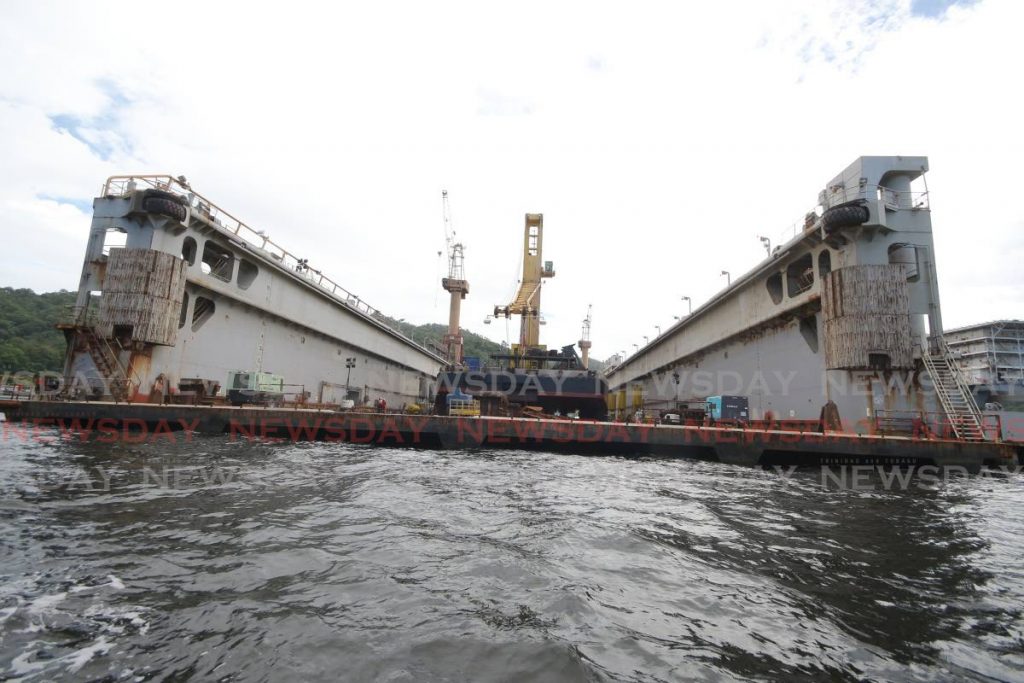Why shipyards are new template for election promises

KIRAN MATHUR MOHAMMED
kmmpub@gmail.com
Next month’s government must be shovel-ready with dollar-store stocking-stuffers. Whichever party can deliver an economic jolt (or more credibly promise to do so) will win the election. But this time is different – neither party can afford past-eras’ populist largesse.
Manifesto promises in the covid19 era have no choice but to provide a real return on investment, use as many existing assets as possible – and, most importantly – cost millions, not billions to execute. We need a new template for productive manifesto projects that earn voters’ trust.
So, what does that mean at ground level? Shipyards are a perfect real-world example. It turns out in that industry alone we have a tremendous opportunity to bring in more than US$100 million and create up to 2,000 jobs by unlocking the potential of existing assets.
Indeed, the State has plenty of existing assets with just a fraction of their potential realised. Look at government-owned Caribbean Dockyards in Chaguaramas (Caridoc, the former CL Financial-owned ship repair facility).
As Caribbean Dockyard’s former executive director Grant Taylor explained to me (disclaimer: Mr Taylor is now managing director of this paper’s publisher, Daily News Ltd), this is a clear opportunity to turn a largely mothballed asset into a profitable concern. After all, Caridoc is “the only protected deep-water harbour in TT.”
The appeal of this is that it uses assets already in place to generate jobs and income, rather than demanding a vast new outlay from the State before any value is created. As Taylor points out: “Any new initiative will cost $100 million or more just to put in what currently exists at Caridoc.”
Covid19 may have dented shipping lanes, but potential remains. Caribbean trading vessels are a ready market for ship repair.
At a time when each week brings more news of the closure of one industrial plant or postponement of a drilling project after another, the shipping industry is one of several industries – technology and healthcare included – that can hoover up some of the thousands of newly unemployed from traditional sectors like energy.
Institutions like UTT can be ideal feeder schools for industries like shipping. With UTT’s proximity to dockyards in Chaguaramas, graduates can be offered on-the-job experience with the strong expectation of a steady, well-paying job on graduation.
The government has limited dry powder at its disposal. With record projected deficits, the state cannot afford to invest vast sums in over-specified projects. Not to mention the State doesn’t have the in-house expertise necessary to seriously overhaul state enterprises such as Caridoc and turn them into top-notch commercial operators.
If any new government wants fast wins and rapid revenue generation, it must look for private-sector operators with the expertise of operating and running shipyards and inject some cash to re-start facilities.
Beyond any single project, this is the opportunity to act with broad purpose to catalyse industries and capture as-yet unfilled niches. Lest you forget – this means more jobs and more votes.
People are ready to invest. Heavyweight figures, like former chief of defence staff Commodore Anthony Franklin, have identified potentially lucrative areas for growth – like that for repairing the smaller 1,200-tonne vessels owned by our state enterprises from Heritage Petroleum to Nidco and the Port Authority. These are currently being shipped off to Suriname or Curacao for repair, costing valuable foreign exchange.
Servicing these vessels at home can be an anchor for new facilities that can also capture work for the energy industry, alongside smaller vessels from the region drawn by strong engineering expertise and sheltered ports.
There is even room for new dockyard construction, as existing facilities are focused on larger vessels. Caribbean Dockyards was largely built for 20,000-tonne boats, while La Brea’s planned facility is meant for big rigs larger than 65,000 tonnes.
Cash follows confidence. A strong government commitment to remove bureaucratic obstacles to industry growth and to resource and train state agencies like EXIMBank and ExporTT to actively support shipyards to attract new foreign-flag vessels will give local and international investors the confidence they need to invest.
Shipyards alone won’t restore our country. More than a focus on any one industry, this is an example of a new model for government projects. We must move beyond the myth that grand promises alone can inspire voters. Our citizens have long been ready for a message of competence and tangible progress.
If this year’s election manifestos finally recognise that, our political parties will have begun to regain voters’ confidence that they can deliver real growth in hard times.
Kiran Mathur Mohammed is a social entrepreneur, economist and businessman. He is a former banker, and a graduate of the University of Edinburgh.


Comments
"Why shipyards are new template for election promises"